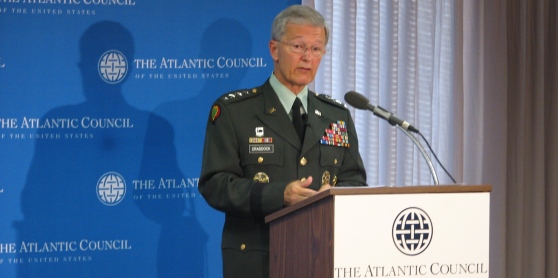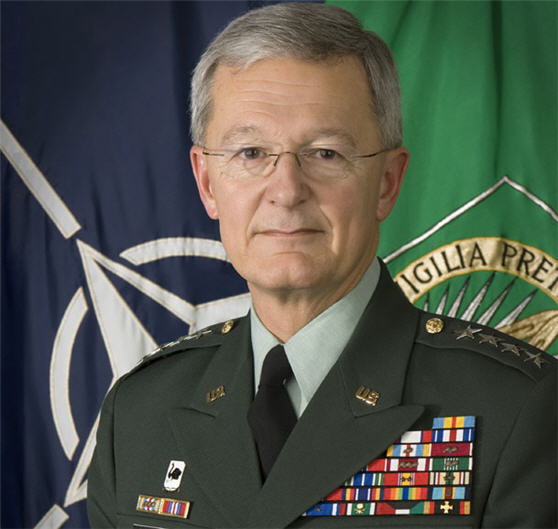
Supreme Allied Commander John Bantz Craddock told the Atlantic Council that “political leadership in NATO is AWOL” and that fixing the “imbalance” between an enormous strategic ambition and modest political will is vital for success in Afghanistan and elsewhere.
The general acknowledged Afghanistan as the most vital mission of the Alliance and stated that there are three strategic objectives: security and stability, good governance, and reconstruction and development. While NATO has a direct role in only the first, it has an indirect role in the other two. While acknowledging the constant refrain of “We don’t do nation-building,” he said that strengthening Afghan governing institutions was “the critical path” to operational success. He declared, “We can be perfect in securing the area but if government fails, we fail.” While this is ultimately the responsibility of the Afghan leaders themselves, Craddock contends NATO has not done enough to help them along.
More fundamentally, the Alliance has not kept its promises. It has not come close to funding the objectives it set for itself in 2006, upon taking control of the mission, and it is clear that the domestic political interests of NATO member states have been paramount over Alliance goals — even though said goals were achieved through painstaking consensus building. Craddock understands that political leaders in democracies have to consider public opinion. At the same time, however, he said “It’s the job of leaders to persuade the citizenry” on important foreign policy goals and that “often, this has not been the case.”
Asked in the Q&A about today’s replacement of David McKiernan with Stanley McChrystal as ISAF commander, he twice demurred, calling it a “U.S. decision” rather than a NATO one. He did allow that he was “informed but not consulted” on the decision.
James Joyner is managing editor of the Atlantic Council.
Image: craddock-500_0.jpg
